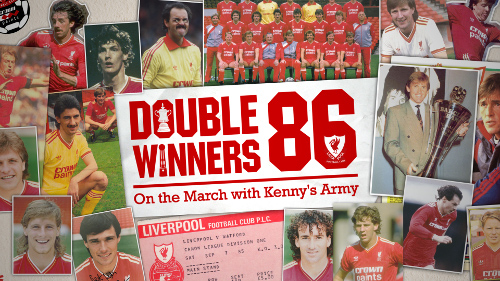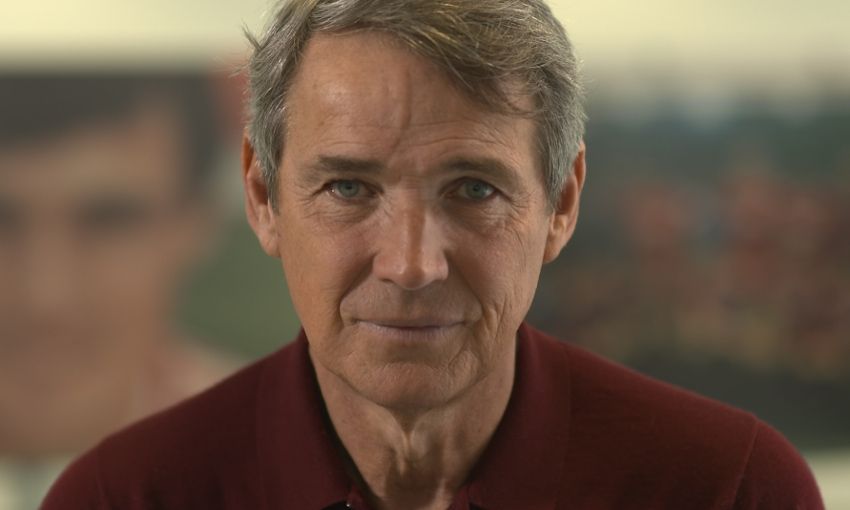Hansen: How the 'worst Liverpool side' proved me wrong
Alan Hansen is staring at the floor.
Using his lean arms like scaffolding to support his wiry frame, he sways pensively back and forth on the edge of his seat.
"I just remember coming into the dressing room," he whispers with a solemn shake of the head.
"And there wasn’t a lot of words said. Because… sometimes…there’s nothing to say."
Emitting a sigh, he eases back into his seat and draws a breath so pronounced that the air seems to rattle around his teeth.
He's been casting his mind back to the day of February 22, 1986.
It's not been a pleasant experience so far.
This was the day Liverpool's attempts to win a 16th league title were all-but shredded and in the most humiliating fashion by Everton at Anfield.
Inside the club's famous home dressing room, broken figures clad in red slumped beneath a haze of sweat, soil and despair.
Down the corridor, the sound of blissful Bluenoses reverberated off the narrow walls.
Liverpool had needed a win against their bitter rivals to stay within touching distance of them at the top of the First Division.
However, the visitors left Anfield gob-smacked after prospering from three minutes of havoc.
Howard Kendall's side, who had swept to the league title the previous season, walked away with a priceless 2-0 victory.
With 12 games to play, the Reds were languishing eight points behind the Blues.
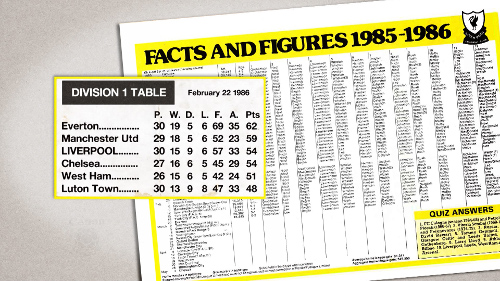
The balance of power in the city, unthinkably, seemed to have shifted.
The prospect of a consecutive title added to the Goodison Park trophy cabinet loomed large.
Everton’s players joined their fans in joyous union as they danced on the Anfield turf.
The Kop could only watch in confusion as the old enemy toasted the second of two sobering goals.
The first had been nothing short of farcical.
Kevin Ratcliffe, Everton’s captain, was allowed to stroll unheeded to the halfway line, pick up a pass in oceans of space and dispatch a tame effort towards goal.
Liverpool’s defenders turned away at a walking pace and jogged up field, fully expecting the ball to bobble into the clutches of Bruce Grobbelaar.
The Zimbabwean had hitherto repelled everything Everton had to throw at him.
He was, in the 74th minute, man of the match as the ball trickled towards him in front of the Kop.
“Ratcliffe’s hit this shot from 40 yards,” reflects Hansen, wincing at the very thought.
“He’s mishit it, and it’s bounced eight times before it’s got to Bruce.
“And Bruce has let it in.”
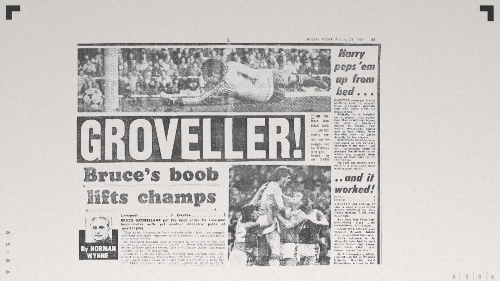
Ratcliffe's daisy-cutter squirmed beneath Grobbelaar and dribbled over the goal-line.
Blue shirts swarmed to their disbelieving skipper and engulfed him in celebration as Anfield fell quiet.
“Then," continues Hansen, indignation etched across his features. "Lineker got the second goal and looked like he was 10 yards offside."
Hansen and his teammates had been floored.
“I went out for dinner with Kenny Dalglish [the club's player-manager] that night,” he says.
“And I said to him, ‘Look, this is the worst Liverpool side I’ve ever played in, in my life'.
“'This team is going to win nothing'.”
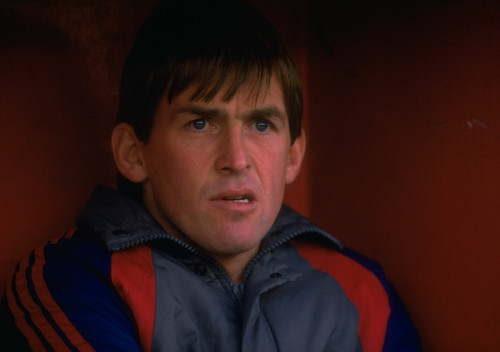
It was a season which began against a backdrop of uncertainty.
“The team that year was not as good as the previous teams I had played in,” explains Hansen.
“Graeme Souness had gone. In 1984-85 we’d reached the final of the European Cup and the semi-final of the FA Cup, but always in the back of my head I thought we were just a bit short.”
Defeat to Juventus in the European Cup final meant Liverpool finished a campaign trophy-less for the first time in 10 years.
Football resumed under the cloud of Heysel.
Players returned home to a city mired by economic strife, stung by cuts to public services and flailing due to the desecration of old industries.
Manager Joe Fagan departed the club and the Liverpool board moved quickly to confirm Dalglish as his successor.
Kenny would be the player-manager - a unique decision by a team at the highest echelon of the game.
And yet, nine months on from his unveiling, there was Dalglish, sat stone-faced at dinner, listening to the man he appointed captain label the current crop of Anfield stars the worst for a generation.
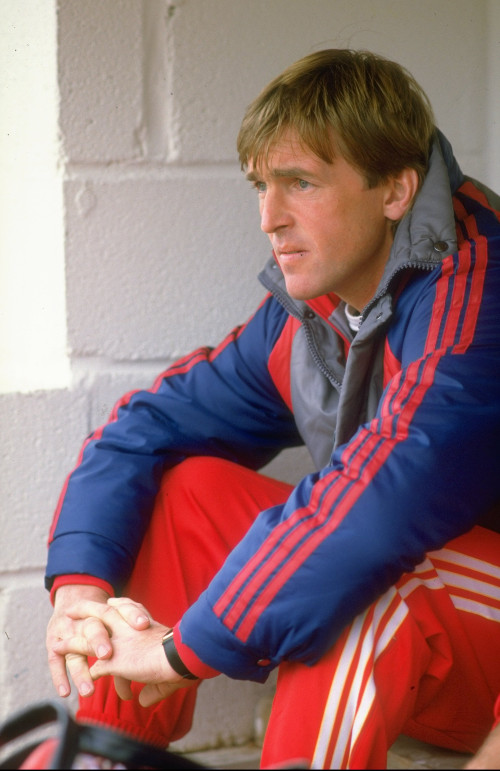
Hansen picks up the story: “But Kenny did say to me, ‘I think, we’ve got decent spirit in the camp and if we can get a result and get a bit of momentum, I think we can still achieve'."
His eyes flicker momentarily.
It's as though even now - a full 30 years later - the mere recollection of Dalglish's defiance has instilled a fresh optimism inside him.
“And then it was that the next week we played Tottenham,” he beams.
At White Hart Lane it was win or bust, but a similar story seemed to be unfolding.
Grobbelaar misjudged a corner after just three minutes and the ball hit the back of the net to compound seven days of uncertainty between the sticks.
However, Liverpool, with time-honoured resolve, fought back from the brink.
Jan Molby, the irrepressible Great Dane, hacked a low shot beyond Ray Clemence to equalise.
Then, with the clock ticking into injury time, Ronnie Whelan released Ian Rush and the Welshman flicked a right-footed shot beyond the ‘keeper to send the travelling fans into ecstasy.
“I think it was the biggest goal of that season,” says Hansen. “I think if we’d drawn that game we would never have won the league.”
The floodgates opened.
Liverpool embarked on perhaps the greatest unbeaten run in the club’s history.
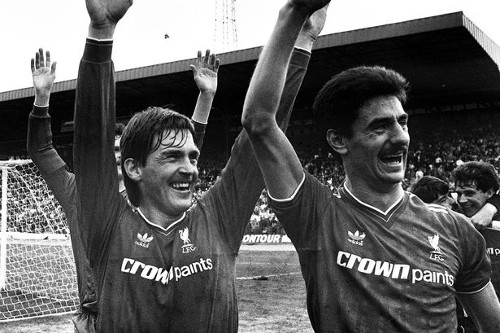
Including the victory over Spurs, they won 11 out of the final 12 matches, scoring 28 goals and conceding just three.
“It was just like a rollercoaster,” says Hansen.
“We went from being a side that never really knew where the next result was going to come from to thinking, ‘we can’t get beaten here’.
“It was absolutely amazing in the run-in. Every time we went on the pitch, I thought - we can’t get beaten. And in football that’s a wonderful feeling to have.
“There’s no complacency there, but at the same time, we’re going to beat everybody who is put in front of us - and we did."
They leapfrogged Manchester United into second place before finally turning the tide against a bemused and bedraggled Everton.
And when Dalglish struck the winning goal on the final day of the season against Chelsea at Stamford Bridge, one of the greatest turnarounds in Liverpool history had been completed.
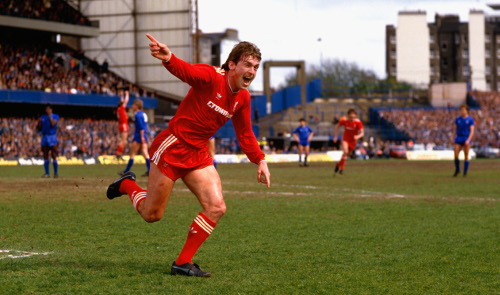
“It was just awesome" says Hansen. "I think it was the best title that I won because we came from nowhere.”
More unbridled joy was to follow a week later at Wembley.
After successfully negotiating a route to the FA Cup final, Liverpool met Everton again.
The Blues were still licking the wounds left by an implosion in the league title race and desperate for retribution.
The stakes could not have been higher as Dalglish’s side prepared to make history by winning the club’s first ever league and cup double.
“They keep you in the [Wembley] tunnel for 10 or 15 minutes,” recalls Hansen.
“Then you come out of the tunnel and you hear this crescendo of noise – and because it was Liverpool against Everton it was just incredible.
“I’d played in four European Cup finals and I’d never ever experienced anything like this. This was like bedlam - the noise, and it was so hot.
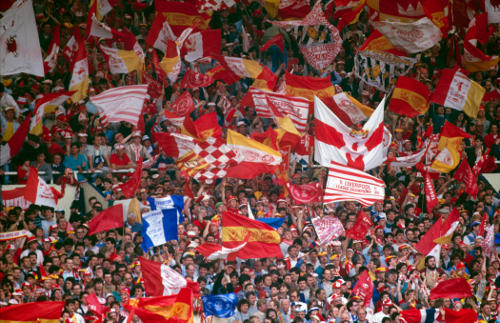
“Everton got a corner after about seven minutes and I’m marking Graeme Sharp at the back post and he turned and said: 'It’s hot isn’t it?' And I just groaned.”
Everton swarmed forward, urged on by the baying blue half of Wembley.
They outplayed Liverpool, and in the 27th minute they managed to draw first blood in the final.
Arch-Evertonian Peter Reid floated a sumptuous pass over the Reds’ back-line and Lineker set off.
Hansen froze.
Time stood still.
“Hansen the pundit would have slaughtered Hansen the player,” admits the Scot, throwing in another weary shake of the head for good measure. “I broke every rule in the book.
"When Reidy chips it through, I’m looking up. The golden rule is that as soon as [the pass is made] you either push up and let [Lineker] run offside, or as soon as he’s gone, just turn and run.
“But I’m caught between the two of them and he’s running.”
Lineker tore away.
The England man stung the gloves of Grobbelaar with an initial effort before scampering around the floored Zimbabwean to tuck away the opening goal of the game.
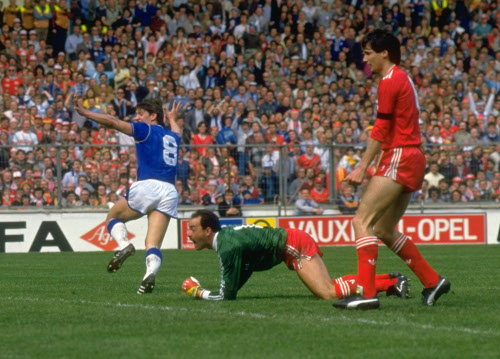
It was Everton’s final to lose in the blistering heat. Hansen was red-faced.
“That season I only missed one game and it was one of my best seasons,” he reflects.
“But [the cup final] was one of the worst games I played that year. I made two or three mistakes.
“I was an experienced player, I’d played in four European Cup finals. But the nerves had just gone.
“My legs had gone and I felt like I couldn’t’ wait to get off. At 1-0 I thought we could get stuffed.”
“Then, of course, Jan Molby provides three little bits of magic and we won the game 3-1.”
Molby was scintillating in the way he took control of the final, spraying passes short and long to bully Everton all over the park.
Rush prospered from a clever Molby nutmeg and hurtled into space behind the Everton defence. The Welshman rounded Bobby Mimms and rolled the equaliser home.
Molby was at it again, squaring for Craig Johnston to put Liverpool ahead just after the hour mark.
And then came the Dane's pièce de résistance, swivelling on the halfway line and sliding the ball through the legs of Pat Van Den Hauwe to release Whelan.
Galloping forward with Dalglish speeding away to his left, Whelan opted to loft the ball over Ratcliffe and into the path of Rush, who fired Liverpool's third goal.
With a scoreline of 3-1, Liverpool had achieved the double.
Hansen’s post-derby dinner with Dalglish and the crisis talks of February seemed an eternity ago.
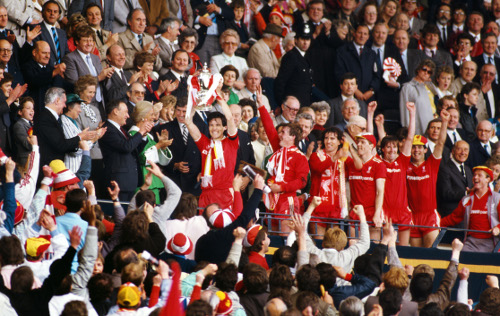
“It was one of the biggest achievements of my time at Liverpool,” said Hansen. “We’d won the European cup, we’d won the title but we’d never won the title and the FA Cup.
“To be lifting the trophy in May as a double-winning captain was probably better than anything I ever did at Liverpool. It was absolutely awesome.
“I think the celebrations afterwards were even better than Rome 1984, Paris 1981 or Wembley 1978. Simply because we won the double out of nowhere.
"And nobody, after we were beaten by Everton, expected us to win the double. And yet we went on this great run.
“The camaraderie and the team spirit was absolutely phenomenal and that pulled us through.”
A new feature-length documentary celebrating Liverpool’s clinching of the coveted league and FA Cup double will premiere exclusively on LFCTV GO tomorrow afternoon.
‘Double Winners ’86 – On The March With Kenny’s Army’ relives an unforgettable season and features the likes of Hansen, Dalglish, Molby and more.
Narrated by ITV Football's Clive Tyldesley, the 86-minute film will be available to subscribers on LFCTV GO from 2pm GMT. Click here to find out more about how to subscribe to LFCTV GO.
